Scientific American
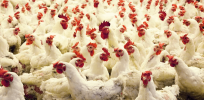
Viewpoint: CRISPR gene editing is no silver bullet in in the battle to contain bird flu
Recently, a group of scientists announced a breakthrough approach to combat Highly Pathogenic Avian Influenza (bird flu or avian flu), a severe illness ...

Comparing weight-loss drugs Ozempic and Mounjaro
Drug Comparison: A plethora of new weight-loss drugs are now available in the U.S., but they aren’t necessarily the same ...

Viewpoint: ‘Conversion therapy for gay and transgender youth is one of our darkest chapters. We shouldn’t inflict it on today’s kids’
New bills aim to create a climate of panic around young LGBTQ people’s access to health care and participation in ...

Death and dying: In our lawsuit-laden society, here’s why we need a more precise definition
UDDA, the U.S. legal standard for death, has deficiencies, particularly with the description of death by neurologic criteria ...

Urban farming sounds great in theory — but releases more CO2 than conventional agriculture. Here’s what needs to change
A new study in Nature Cities compared carbon emissions from small farms and gardens in major cities across the U.S. and Europe with ...

Viewpoint: Weight loss drug boom raises host of unaddressed ethical and scientific questions
The world has launched into an era of injectables not just to treat obesity but to manage weight. Is that ...

Empathy and anticipation of desires: Children have it, but apes do not
Have you ever guessed what dish your significant other would order at a restaurant before they even picked up the ...

Maybe Vitamin D isn’t such the ‘miracle supplement as the hype—and many scientists—have long claimed
For a while vitamin D was looking like a bona fide health elixir. It was recognized a century ago as ...

‘Emotions are friends not foes’: Why we shouldn’t try to control negative emotions
Our beliefs about emotions—whether we feel that they’re good or bad, controllable or uncontrollable—affect our life and relationships ...

We’re headed into sniffle season. Which at-home remedies for stuffy noses work?
Snotty, stuffy noses are the hallmark of cold and flu season, but some medications and at-home remedies may offer relief ...
It’s become axiomatic that the ability to eat meat helped spur development of intelligence in early humans. Let’s reassess
Modern man is a born meat eater, they reason, as a glance at human history shows. What's more, the mastery ...
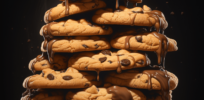
Why is it easy for our brains to estimate four things, but not five or more?
Your Brain: Humans can size up a grouping of four or fewer items in an instant, but larger quantities pose ...

It’s Halloween horror movie time. Why do some people love to be scared while others are squeamish?
Scary play lets people—and other animals—rehearse coping skills for disturbing challenges in the real world ...
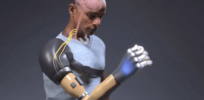
Bionic system allows man with above-elbow amputation to control every finger of a robotic arm
Most bionic limbs are controlled by electrical signals generated by muscles moving near the attachment site. But when an arm is amputated ...

Are ‘forgotten’ memories lost forever?
Forgetting is a fact of life—one that many people find frustrating. But mounting evidence pushes back at the notion that ...

Viewpoint: Medical, financial and ethical hurdles block humanity’s dream to settle space
Companies such as United Launch Alliance and Lockheed Martin are designing infrastructure for lunar habitation. Elon Musk has claimed SpaceX will ...

Can AI chatbots ‘feel’?
Generative AI has made giant strides toward machine intelligence. Can machine consciousness be far behind? ...

Measuring the addictive potential of ‘ultra-processed foods’
Given the option, most rats will choose sugar instead of cocaine. Their lust for the carbohydrate is so intense that they ...

Grandiosity or self loathing: Understanding the sufferings of narcissists
Chances are you've encountered a narcissist, and they looked nothing like Trump, Musk or Modi. Up to 6 percent of ...

ChatGPT has just had a major update. What can it do now?
OpenAI just released an updated version of its text-generating artificial intelligence program. Here’s how GPT-4 improves on its predecessor ...
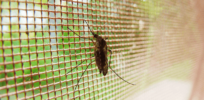
Record heat waves wreak havoc on attempts to wipe-out disease-carrying mosquitoes
Scientists have warned that some mosquito-borne diseases, like malaria and dengue fever, may spread into new territories as the world ...

Here’s why ChaptGPT and other AI models may not always improve over time
AI Deterioration: More training and more data can have unintended consequences for machine-learning models such as GPT-4 ...

Cute canine head tilt: What are dogs thinking?
Canine behavior: research suggests the animals might cock their furry noggins when processing familiar words ...
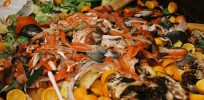
Climate change impact of food waste: ⅓ of our food is wasted contributing to half of agriculture’s carbon footprint
Around a third of human-generated greenhouse gas emissions comes from the global food system, and lost or wasted food is known ...

Is the Oppenheimer movie accurate? Expert breaks down science of box office hit
Oppenheimer won’t bomb in the box office, but despite its director’s best efforts, the science in the film is a ...

Does Barbie cause girls to have negative feelings about their bodies?
Barbie body image: A clinical health psychologist talks about Barbie’s influence on how women and girls view their body ...

‘They’re both breakthroughs’: Two new obesity drugs that could be cheaper and more effective than Ozempic on course for approval
Hormone mimics offer advantages even beyond those of the potent weight-loss shots on the market now ...

Out-of-body experiences explained: Here’s how the brain ‘creates’ your sense of physical self
New insight comes from zapping a region, known as the anterior precuneus, that causes people to feel dissociated from their ...

